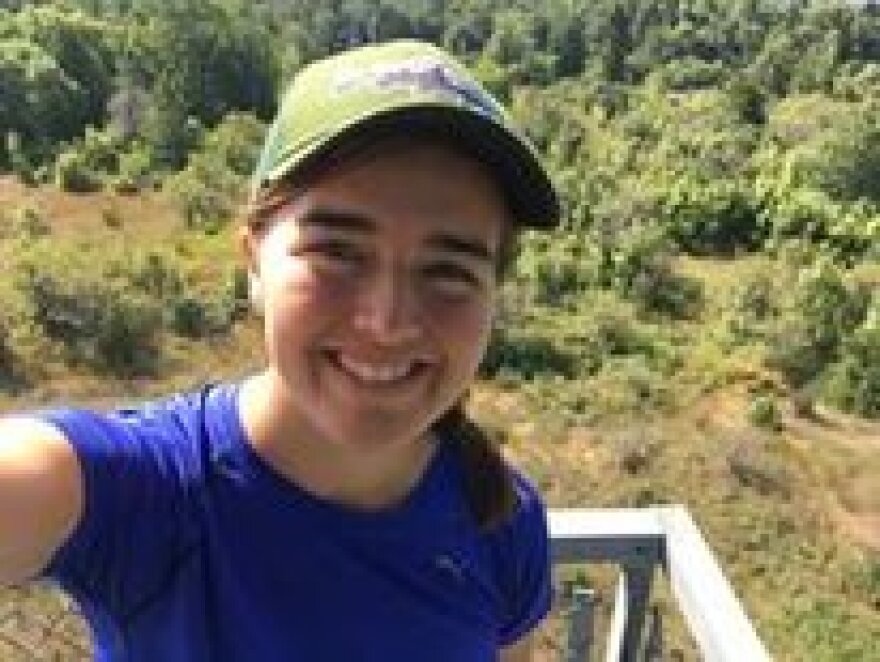GRAND RAPIDS — In November, we celebrated 40 years of Phenology with John Latimer on KAXE / KBXE. Though he may not know it, his love of the natural world has impacted many people, especially students, over the years.
Two former students, Sam Guida and Maggie Anderson, have continued pursuing their love of the outdoors. Both Sam and Maggie credit John and the “Phenology Talkbacks” program with encouraging their passion for the outdoors. As children, Maggie and Sam would each send in weekly phenology reports, documenting the changes they saw in nature (plus whatever other exciting discoveries they made).
Scientist Sam

A few decades later, Sam Guida is now working as a naturalist at Wolf Ridge Environmental Center. He has a special interest in galls, which are little hidden insect homes that form inside plants.
Sam joined us on the KAXE Morning Show to share what John Latimer has meant to him and his career.
“I get to go to events and do a little education,” Sam said, “but John is also there, and it’s really cool to be reinvolved in that process … (and) be part of phenology for the next generation with one of my mentors.”
Conversely, John has great respect for Guida as well, saying, “I value our friendship and the fact that I can turn to you for answers.”
Sam recently led a presentation on galls for the Minnesota Department of Natural Resources: you can check it out here.
Marvelous Maggie

Maggie Anderson is a graduate student at the University of Minnesota, where she studies the phenology of native grassland plants.
She joined the KAXE Morning Show as well.
“It was really cool for me to see someone as knowledgeable and curious as John just doing this for his, you know, his main thing,” she said. “And I think seeing someone who is that passionate about nature really inspired me.
“You know, when you’re going through those teenage years — and nothing’s really cool, and nothing adults do is really cool — I think that I was able to get through that time by knowing that there were some pretty cool adults in my life who were very, very passionate about the outdoors.
“I think that stuck with me all through middle school and high school and college, and ultimately up to now. So, that’s a very, very small part of what I think John’s inspired for me, but yeah — it's definitely, definitely made an impact.”
After shedding a tear or two, John replied, “Well. It was kind of you to mention all that. I think truly the impact was more directly from your parents, who are two remarkable people. … I’m pretty happy to have been a small catalyst in that whole equation. Thank you for your words and the stuff you’re doing now.
“I can’t wait to talk to you. Actually, to maybe read your paper, though I’m sure it’ll be way over my head. I’ll probably have to have you help me through it, but I look forward to that day.”
As it turns out, Maggie is working with a six-plus year data set, where researchers documented the leaf-out, flowering and fruiting dates of different prairie plants in different temperature and water conditions.
A final warning
In a very apt conclusion to a wonderful week, Maggie said, “Be careful getting your kids into phenology. They might end up scientists.”
That’s the dream, Maggie! John couldn’t be prouder of your and Sam’s accomplishments.
For more phenology, <b class="rte2-style-bold">subscribe</b> to our Season Watch Newsletter or visit the Season Watch Facebook page.
Funding for this project was provided by the Minnesota Environment and Natural Resources Trust Fund as recommended by the Legislative-Citizen Commission on Minnesota Resources (LCCMR).








